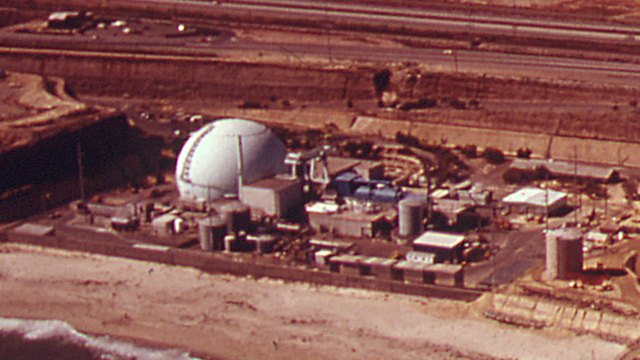I was born in a desert in Southern California, though real estate developers had done a great job of convincing most of the residents otherwise. I don’t remember how I became aware of the scarcity of water — when all the homes, apartments, and office buildings around me had lush lawns — but somehow I did. I have never taken for granted that the water would be there whenever I turned the tap, and I was forever worried that we were using too much, wasting too much, and that the well would literally run dry one day.
It took me a little longer to become concerned about energy. I loved my gas cooking appliances and we got air conditioning when I was about 12 years old and I thought it was amazing. Then we started learning about shortages in fossil fuels. I also knew about solar power (I got a small solar cell in a science project kit and thought it, too, was amazing). And couldn’t we use solar cells to power our air conditioners?
About that time, utility companies were touting the virtues of nuclear power. We didn’t need solar cells because clean electricity was about to become “too cheap to meter.” I lived walking distance from the San Onofre Nuclear Generating Station and became increasingly aware of nuclear power safety and sustainability issues.

I built solar-powered radio repeaters and, later, solar-powered computers. I fiddled with the houses I lived in to maximize solar climate control. I dreamed of driving an electric car that could be recharged with electricity from solar. It wasn’t until 2019, though, that I was able to acquire Joulee the Free Salvage Tesla and install enough solar panels to keep her charged. Alas, my solar plant was still grid-connected and it didn’t feel independent from big fossil-fuel driven utilities.
At the same time, California was in drought and would be off-and-on — mostly on — for years. Sometimes I felt that just existing was environmentally irresponsible.
As I approached retirement I began to realize that the energy cost alone of living where I did would make retirement unsustainable. I had to reduce my energy footprint, not just for the sake of the planet, but for the sake of my pocketbook. It became one of the headline criteria for my choice of residence in retirement.
Now I live on the windward side of a Pacific island a couple of thousand feet up the side of a mountain. The weather stays well within a comfortable range, so I won’t need to buy energy just to keep my home at a livable temperature. There’s a huge water tank nearby, and it has been full or nearly full for two years. Yes, droughts can still happen, but the truth is that any water I might have “conserved” since I came here would simply have ended up as runoff in the ocean three miles away. Now, also, I have abundant energy. It’s too soon to know how often weather will make it necessary to be careful with our energy use, but already today — our second day of operating the new solar plant — we had to do some juggling to not just end up throwing excess generated energy away (in this case, charging the car more than we otherwise would have). We should soon be able to stop burning things (except firewood) for energy.
I’m not sure how I feel about my post-scarcity situation. The urge to conserve is so ingrained, I doubt I’ll be able to suddenly start being cavalier about my water and electricity use. There are still many ways in which my footprint on the planet is harmful. It does feel good, though, to have conquered a bit of it.
—2p